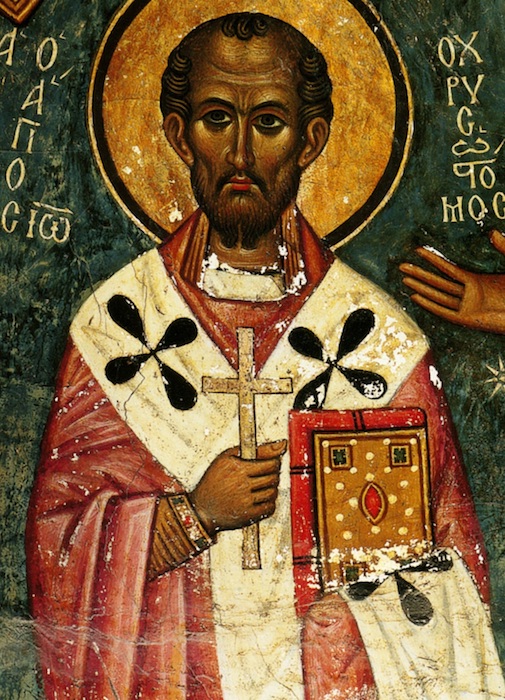Saying Matins this morning on the feast of St John Baptiste de la Salle I was taken by the three readings in the third nocturn about the formation of the young, which are taken from the homilies of St John Chrysostom.
In a time when there continues to be discussion and debate about Christian formation of the young and particularly about its sinister mirror image represented by the abuse scandal, it is perhaps timely to read the views of a Church Father from more than sixteen centuries ago.
A Homily by St. John Chrysostom
In Cap. 18 Matth. Hom. 60
In Cap. 18 Matth. Hom. 60
Take heed that ye despise not one of these little ones, saith the Lord, for their Angels do always behold the face of my Father which is in heaven. It was as though he had said: It was for them that I came, because this is the will of my Father. Thus doth he make it our duty to be full of thought and care for the protection and safety of these little ones. Ye see what vast ramparts he hath built for the protection of the little ones, and how much care and trouble he hath taken that they shall not be lost; yea, he pronounceth extreme penalties on them that despise them; and for them that undertake to care wholeheartedly for them he promiseth most high rewards. And all these things of his teaching, he doth further enforce by his own example and by the example of the eternal Father himself.
Let us therefore take to heart what the Lord saith, and imitate his example. Let us neglect nothing which it is in our power to do for these our little brothers and sisters. Let us be ready to undertake any work on their behalf, even the most homely and mean (that is, homely and mean in the eyes of men). And if there should be some further need of our assistance, even to the point of self-denying and laborious effort on our part, let us render it graciously; and let us do these things the more so when our help is required for one that is tiny and unloved and unwanted. And let us practice ourselves in these things until they become tolerable to us, and even easy, because we do them for the sake of one who is our little brother or sister in Christ. For God hath made evident that every soul is worthy of so much diligent care that he spared not his own Son for the sake of such.
If it be not enough for our salvation that we ourselves live virtuously, but we should desire in very truth the salvation of others; what shall we answer, if we do not live right nor teach others? What hope of salvation will remain unto us? What is nobler than to rule minds or to mould the character of the young? I consider that he who knoweth how to form the youthful mind is truly greater than all painters, sculptors, and all others of that sort.
Reproduced from Divinum Officium
There are two recent online essays about St John Chrysostom and the prescience of his teaching in the modern world which may be of interest.
The first is by a US Orthodox priest Fr Josiah Trenham and can be read at Saint John Chrysostom for the 21st Century
The second is by the Oxford based Anglican theologian the Rev Mark Edwards and is at St John Chrysostom — St Mary Magdalen School of Theology


Icon of St John Chrysostom. Image: St Mary Magdalen School of Theology
It is interesting that the depictions of St John Chrysostom show a remarkable consistency from early on in giving him a receding hairline, rather thin face and a slight beard.


No comments:
Post a Comment